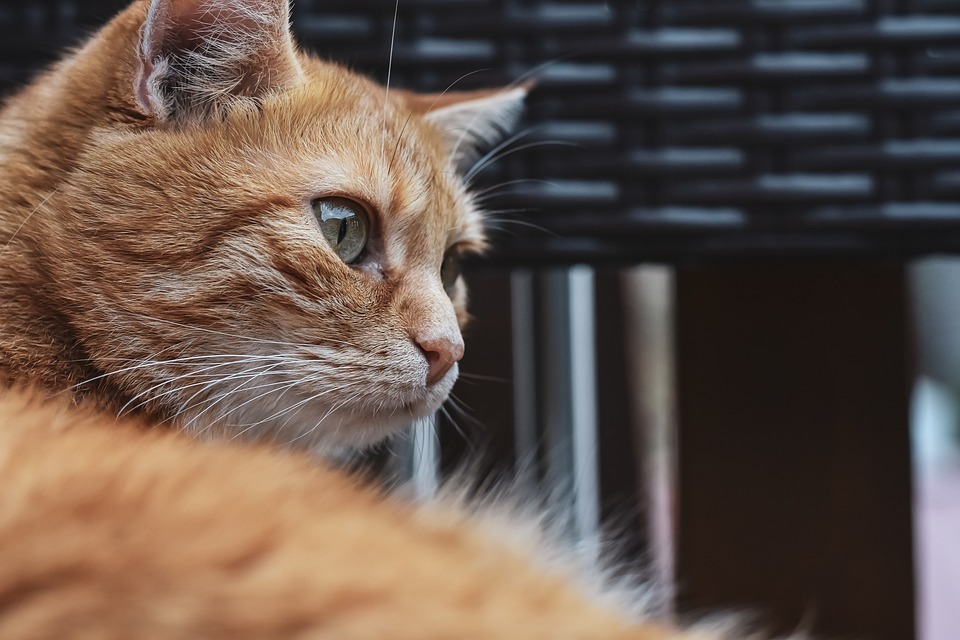Cats are curious, intelligent creatures that thrive on mental stimulation. Without adequate mental exercise, cats can become bored, restless, and develop behavioral issues. In this article, we will explore the signs that indicate your cat needs more mental stimulation and provide tips on how to keep your feline friend mentally engaged.
1. Excessive Vocalization:
Increased meowing, yowling, or howling can be a sign of boredom or frustration in cats. If your cat is excessively vocal, it may indicate a lack of mental stimulation. Engaging your cat in interactive play sessions can help channel their energy and prevent excessive vocalization.
2. Destructive Behavior:
Cats that engage in destructive behaviors like scratching furniture, chewing on cords, or knocking over objects may be trying to release pent-up energy due to insufficient mental stimulation. Providing your cat with appropriate outlets for their natural behaviors, such as scratching posts and puzzle toys, can help redirect their energy and prevent destructive behavior.
3. Aggression:
Aggressive behaviors such as biting, hissing, or swatting can be a result of boredom in cats. When cats have nothing to keep their minds occupied, they may resort to aggression as a means of entertainment. Regular play sessions and interactive toys can help alleviate their boredom and reduce aggressive tendencies.
4. Excessive Sleeping:
While cats are known for being snoozers, excessive sleeping can be a sign of boredom. Cats that lack mental stimulation may sleep for longer periods to pass the time. Providing environmental enrichment, such as vertical spaces and interactive toys, can help keep your cat mentally active and prevent excessive sleeping.
5. Inappropriate Elimination:
Cats that urinate or defecate outside of their litter box may be signaling their need for mental stimulation. When cats are bored, they may act out by engaging in this inappropriate behavior. Ensuring your cat has plenty of mental stimulation through playtime, toys, and environmental enrichment can help prevent these issues.
6. Over-Grooming:
Cats that excessively groom themselves to the point of causing hair loss or skin irritation may be seeking stimulation. Over-grooming can be a sign of boredom, anxiety, or stress. Providing your cat with interactive toys and engaging play sessions can help redirect their grooming behavior and provide the mental stimulation they need.
To provide your cat with the mental stimulation they require, consider the following tips:
1. Interactive Toys:
Invest in interactive toys such as puzzle feeders, treat-dispensing toys, or puzzle balls that require your cat to work for their food. These toys engage their natural hunting instincts and provide mental stimulation.
2. Enriched Environment:
Create an enriched environment by offering vertical spaces like cat trees, shelves, or perches for your cat to explore. Provide hiding spots, scratching posts, and toys to keep them mentally engaged.
3. Playtime and Training:
Regular play sessions using interactive toys or laser pointers can provide mental stimulation. Additionally, teaching your cat simple tricks using positive reinforcement techniques can keep their minds sharp.
4. Window Views:
Allow your cat to observe the outside world by providing access to windows. Watching birds, squirrels, or passing cars can provide mental stimulation and entertainment for cats.
5. Rotating Toys:
Keep your cat’s toy collection fresh and exciting by rotating toys every few weeks. This prevents boredom and maintains their interest in playtime.
By recognizing the signs that indicate your cat needs more mental stimulation and implementing the provided tips, you can ensure your feline companion leads a mentally enriched and happy life. Remember, a stimulated cat is a content cat!








